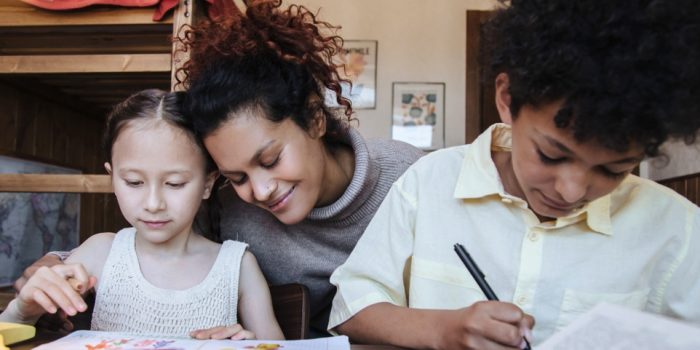Posted on May 12, 2025 by Sue Shields, LMHC, LIMHP, LPC
Adoption

Share
Other Blog Topics
This post is part of our “Talking with Your Child About Adoption” series from Lutheran Family Service — offering Christ-centered support for adoptive families.
Talking with Your Child about Adoption: Conversations at Every Age to Build Understanding and Connection
As children grow, so does their understanding of the world around them — and their own unique story. Adoption is not a one-time conversation but a journey of ongoing dialogue, growing deeper and more meaningful over time.
In this article, we’ll walk through how to talk about adoption at each stage of your child’s development, offering simple tools to help you build connection, identity, and trust at every age.
As Christian parents, we have the incredible privilege to remind our children that they are wonderfully created by God, placed into families by His loving hand, and cherished beyond measure.
Infants & Toddlers (0–2 years)
Start early. Practice early. Even though your baby cannot yet understand words, you are building the foundation for lifelong openness.
“We are so happy God made you part of our family through adoption!”
Tip: Buy a few children’s books about adoption and include them in your nighttime reading routine.
Preschoolers (3–5 years)
Preschoolers are curious and observant — they notice differences, ask questions, and want simple, direct answers.
At this age, kids have short attention spans. Instead of one big conversation, aim for many small talks over time.
Remember: When in doubt, answer only the question asked, using the simplest explanation possible.
6 Things Your Adopted Child Should Know by Age 6:
Elementary Age (6–12 years)
Children in this stage begin to understand adoption on a deeper, more emotional level.
You may hear tender questions like:
Important:
Even if a child stops talking about adoption for a time, it does not mean they aren’t thinking about it. Stay open, periodically bringing up their story in gentle ways.
If your child struggles or seems overwhelmed, it may be helpful to seek the support of an adoption-competent therapist.
Handling Fantasies About Birth Families
It’s normal for children — adopted or not — to imagine “ideal” families as they grow. In adoption, however, fantasies can become more complex because a birth family truly exists.
What if they say “real parents”?
Sometimes, even if you have always used the terms “birth parents,” children may say “real parents” — especially if they hear it from other kids.
Stay calm and gentle:
Child: “Why didn’t my real mom keep me?”
Parent: “I feel pretty real! But I know you mean your birth mom. She loved you very much, but couldn’t care for any baby at the time. She made a loving plan for you to be in our family.”
By modeling grace and preferred language, you show your child how to talk about adoption in a positive, secure way.
Teenagers (13+ years)
The teenage years bring deeper self-reflection and often more complex feelings about adoption.
If the adoption story includes issues like addiction or instability, use those facts to open conversations about:
Key reminders:
By continuing honest, compassionate dialogue into the teenage years, you help your child walk their adoption journey with confidence, grace, and hope.
As Scripture reminds us:
“I praise you, for I am fearfully and wonderfully made. Wonderful are your works; my soul knows it very well.”
— Psalm 139:14 (ESV)
Every child — every story — is part of God’s beautiful design.
This article is part of our series, “Talking with Your Child About Adoption,” created to support adoptive families in navigating conversations with love, honesty, and Christ-centered compassion. Explore the full series to find practical tools, encouragement, and faith-filled guidance at every stage of your child’s journey:
More posts about Adoption